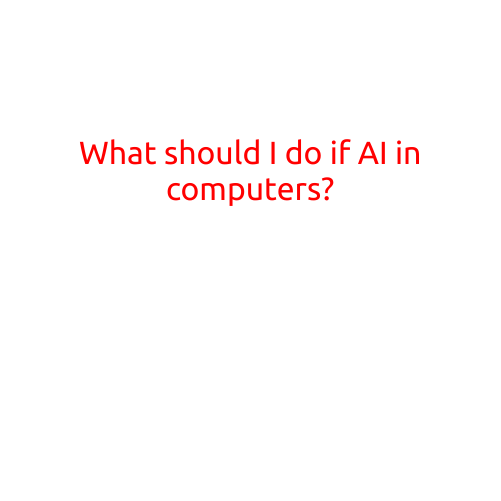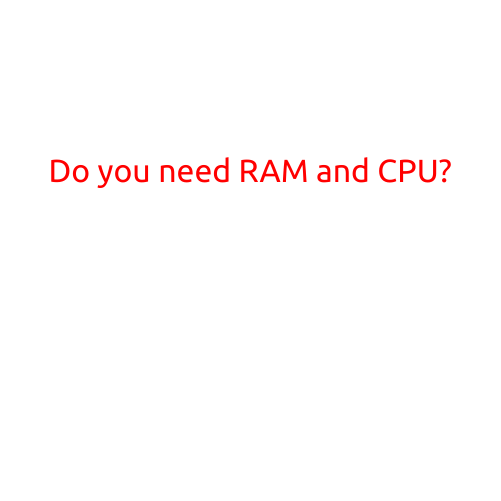
What Should I Do if AI in Computers?
As Artificial Intelligence (AI) becomes increasingly prevalent in our daily lives, it’s essential to understand how it works and what it means for our interactions with computers. AI has the potential to revolutionize the way we work and live, but it also raises important questions about ethics, responsibility, and the future of humanity.
What is AI in Computers?
AI refers to computer systems that are capable of performing tasks that typically require human intelligence, such as learning, problem-solving, and decision-making. AI algorithms are designed to analyze data, identify patterns, and make predictions or take actions based on that data.
What Are the Benefits of AI in Computers?
The benefits of AI in computers are numerous and promising. Some of the most significant advantages include:
- Automated Decision-Making: AI can analyze vast amounts of data and make decisions quickly and accurately, freeing up human decision-makers to focus on higher-level tasks.
- Improved Efficiency: AI can automate repetitive and mundane tasks, freeing up human employees to focus on more creative and strategic work.
- Enhanced Customer Experience: AI-powered chatbots and virtual assistants can provide personalized customer support and automate customer service tasks.
- Advancements in Healthcare: AI can help diagnose diseases more accurately and quickly, and develop personalized treatment plans.
What Are the Concerns About AI in Computers?
While AI has many benefits, there are also concerns about its impact on our society and our lives. Some of the most significant concerns include:
- Job Displacement: AI has the potential to displace human workers in certain industries, leading to job losses and economic disruption.
- Privacy and Security: AI systems can collect and analyze large amounts of personal data, raising concerns about privacy and security.
- Biases and Discrimination: AI systems can perpetuate biases and discrimination if they are trained on biased data or if humans introduce biases into the system.
- Control and Autonomy: As AI systems become more advanced, there are concerns about whether humans will be able to control and oversee their actions.
What Should I Do if AI in Computers?
So, what should you do if you find yourself interacting with AI-powered computers? Here are a few tips:
- Understand How AI Works: Take the time to learn how AI-powered systems work and what they are capable of.
- Be Cautious: Be careful about what you share with AI-powered systems and be aware of potential biases and discrimination.
- Ask Questions: Ask questions about the AI system and its capabilities, and don’t be afraid to seek clarification if you’re unsure.
- Work with Responsible Developers: Support developers who prioritize ethical and responsible AI development and testing.
- Advocate for Regulation: Advocate for regulations and standards that prioritize ethical AI development and use.
Conclusion
As AI becomes increasingly prevalent in our daily lives, it’s essential to understand how it works, what it means for our interactions with computers, and what we can do to promote responsible AI development and use. By being informed, cautious, and advocating for ethical AI development, we can harness the benefits of AI while minimizing its risks and challenges.





